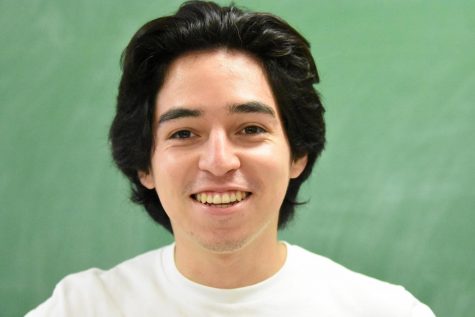Gender studies lacks degree
Mar 20, 2019
Beginning this fall, the La Raza studies department will offer an introductory overview of LGBTQ studies as Contra Costa College embraces gender and sexual equality.
Chicano and La Raza studies department Chairperson Agustin Palacios has been working to bring a course that counts toward a transfer degree in social justice that will cover the history and culture of the LGBTQ community.
“We heard back from the state in April after they checked which requirement would be filled toward a transfer degree in social justice studies,” Palacios said. “It is very likely that we will have La Raza 131, Intro to LGBTQ Studies next fall.”
Sister colleges Los Medanos College and Diablo Valley College already offer classes in both women’s and LGBTQ studies.
The class represents the first dedicated course of study surrounding LGBTQ issues in the history of the college.
“I knew the campus needed to have this course. I didn’t care which department or who has to offer the class. We should just have it,” Palacios said.
Palacios said any course offered on campus has to fit into his overall block schedule. In order to make time for the course, he will use portions of his own curriculum development time to compensate.
Tasks do not end there for Palacios as he still needs to find someone to teach the course.
“Looking for a candidate qualified to teach the class is going to be a daunting task,” he said. “Preferably, we want someone who is well-trained in both ethnic and sexual studies.”
There’s also an emphasis on finding individuals from the same community they teach about, he said.
“It helps to have some people that students can gravitate towards,” he said.
The class will create a safe space for open conversations around LGBTQ issues, he said.
In the past, other courses that focus on minority issues were lost due to lack of interest on the part of faculty and students, but people on campus would like to see some them reintroduced.
“The last time that Women’s History was put in the college catalog was in 06-07,” history, anthropology and geography department chairperson Manu Ampim said.
A lot of programs were under attack a few years ago as they were making cuts to the classes offered, he said.
“One of the things that we wanted to bring back was Women’s History,” Ampim said.
In the past, campus administrators have been hesitant to encourage faculty to offer classes in social studies like these, he said.
In strategic planning meetings, the message from the current administration took a different voice, he said.
“The administration made it very clear they’re going to be open to afternoon and evening classes,” Ampim said.
It seems hopeful that the current administration will (encourage) adding new classes, he said.
It’s important that the college offer classes exploring the history and dynamics of all groups within our society, he said.
Women’s History is one of the things that Ampim’s department wants to bring back. All that needs to be done is the paperwork.
Despite questions about the administration’s support of faculty who wish to add courses to the college curriculum, current administrators are taking a positive approach, Ampim said.
CCC President Katrina VanderWoude said she is open to discussing any new courses that the student body might want.
“If students want courses offered on these subjects, I am open to their suggestions,” Dr. VanderWoude said.
VanderWoude also said the college should offer classes for women’s and LGBTQ history.
Currently, 59 percent of the student body is comprised of women, according to the 2017-18 Datamart statistics provided by the state Chancellor’s Office.
“History is a reflection of our experiences and it’s very important to have that,” she said.
Making sure the campus offers educational opportunities covering all communities is the goal, she said.


